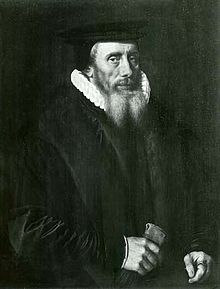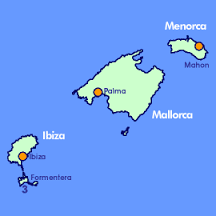Tartessos
Netolitzky, Friedrich
Friedrich (Fritz) Netolitzky (1875-1945) was an entomologist and a professor of botany, which he taught at a number of universities. However, he also had a keen interest in the mystery of Atlantis.
However, he also had a keen interest in the mystery of Atlantis.
Atlantisforschung notes(a) “The fact that F. Netolitzky’s Atlantological work was not completely forgotten after his death is mainly due to the historical geographer Richard Hennig (1874-1951), who wrote about him and his work in several of his books – above all in Das Rätsel der Atlantis (The Puzzle of Atlantis) (first publication 1925). There (pp. 21-24 ) we learn, for example, that Netolitzky ‘s considerations about an Iberian Atlantis of the Bronze Age inspired Adolf Schulten‘s research into Atlantis and Tartessos, who, according to Hennig, described them in individual details”
Netolitzky also provided an independent interpretation of the oriharukon (orichalcum) from Plato’sAtlantis account, which he identified as an artificial modification of white gold (known as Asem in ancient Egypt).
(a) Friedrich Netolitzky – Atlantisforschung.de (atlantisforschung-de.translate.goog)
Fernández Díaz, Fernando
Fernando Fernández Díaz is the Spanish author of two [1808/9] Atlantis related books. One of his startling claims is that he has proven “the Iberian roots of Greek myths and culture.” He identifies Atlantis with Tartessos and places it at Huelva at the mouth of the Tinto and Odiel Rivers. Not contend with that, he has also moved Troy to Iberia in his Cómo encontramos la verdadera Troya (y su Cultura material) en Iberia (How we find the real Troy (and its material Culture) in Iberia.). Understandably one reader described his work as ‘highly speculative‘.
de Camp, Lyon Sprague
L. Sprague deCamp (1907-2000) is probably better known as a science fiction writer with over 120 books to his credit, including two non-fiction titles, Citadels of Mystery (First ed.: Ancient Ruins and Archaeology) [0820] and Lost Continents [0194], in which he was extremely sceptical of the reality of the Atlantis described by Plato. He offers the blunt declaration that Plato concocted the whole story, basing the tale on a mixture of the wealth of Tartessos in Spain, the destruction of the Greek island of Atalanta all intermingled with the mythology of Atlas. Although his criticism is harsh, it should be said that deCamp does display a reasonable degree of objectivity. It is probably because of his perceived integrity that other Atlantis sceptics continually trot out his views in support of their own position.
A few years after Lost Continents was published, Nikolai Zhirov wrote a critique of the book(c), rejecting both its style and content. He notes that “the work shows a bad one-sided knowledge of geology and oceanography which is not counterbalanced by a critical examination of the published geological and oceanographical facts, although it is only by a study of these last that the Atlantis problem can be fully resolved.” Personally, I think that Zhirov’s comments are a reflection of his own bias towards an Atlantic location for Atlantis and ignore many other aspects of the Atlantis question, such as the date when Atlantis existed, as well as the identity of the Atlanteans.
One of deCamp’s most quoted extracts is that “you cannot change all the details of Plato’s story and still claim to have Plato’s story.” While I fully endorse this comment, I must point out that there is a difference between changing and interpreting. For example when Plato refers to Asia or Libya, even deCamp accepted that in Plato’s day ‘Asia’ was not the landmass we know, stretching from the Urals to Japan, but a much smaller territory [0194.27]. In fact the term ‘Asia’ at one point was just applied to a small region of modern Turkey. Similarly, ‘Libya’ was not the country we know by that name today, but the term was often employed to designate all of North Africa west of Egypt. There are a number of other details in Plato’s narrative that require explanation or interpretation and so as long as any such elucidation is based on evidence and reason they cannot be glibly dismissed as substantive ‘changes’.
He scathingly refutes the more outlandish Atlantis theories that have deviated dramatically from Plato’s narrative, commenting that without matching the “date, location, size and island character” with the text we do not have Atlantis.
DeCamp also considered Alfred Wegner’s theory of continental drift as “very doubtful”, but corrected this statement in a 1970 edition of his book. Immanuel Velikovsky also received the sharp end of deCamp’s pen, describing his catastrophic theories as ‘mad’. Further information on deCamp can be found on the internet(a) where excerpts from his Lost Continents are also available(b).
Henry Eichner drew attention [0287] to the fact that in three books relating to Atlantis authored by deCamp he describes a ring found by Adolf Schulten at the site of Tartessos, but slightly differently in all three! In Lost Continents it is plain, in Lands Beyond it is copper, while in Ancient Ruins and Archaeology it became gold!
Frank Joseph incorrectly claimed in the July/August 2011 issue of AtlantisRising magazine that DeCamp “formerly a staunch disbeliever in Atlantis, was later convinced it did indeed exist in south-coastal Iberia.”
>DeCamp had the misfortune to have an excerpt from his book The Ancient Engineers [2073] the notorious Unabomber in America(d).<
(a) https://www.lspraguedecamp.com/ (offline August 2016)
(b) https://books.google.com/books/about/Lost_continents.html?id=3YHwFivT-ykC
(c) Atlantis, Volume 11, No.5, July/August 1958
(d) https://spraguedecampfan.wordpress.com/2023/06/16/sprague-de-camp-and-the-unabomber/ *
Daily Express (UK)
The Daily Express is a well-known British tabloid newspaper. Together with its sister publications, The  Sunday Express and its online Express.co.uk, it has recently set a new record for the number of ‘might be Atlantis’ articles published, all with the byline of Callum Hoare. During the first three weeks of 2019, he has managed to produce four stories suggesting four different locations for Atlantis – Doggerland(a), Malta(b), Azores(c) and the Bahamas(d). But I did not have to wait long for the next regurgitation from Hoare, with another piece mined from a recent Amazon Prime documentary, where the Atlantis in the Canaries theory is reviewed (21.1.19)(e). I note that Hoare was also the author of similar BS Atlantis stories for another alleged UK newspaper, The Daily Star. The quality of research continues to be abysmal, citations are often years old, facts are mangled and quite misleading. Definitely ‘Fake News’.
Sunday Express and its online Express.co.uk, it has recently set a new record for the number of ‘might be Atlantis’ articles published, all with the byline of Callum Hoare. During the first three weeks of 2019, he has managed to produce four stories suggesting four different locations for Atlantis – Doggerland(a), Malta(b), Azores(c) and the Bahamas(d). But I did not have to wait long for the next regurgitation from Hoare, with another piece mined from a recent Amazon Prime documentary, where the Atlantis in the Canaries theory is reviewed (21.1.19)(e). I note that Hoare was also the author of similar BS Atlantis stories for another alleged UK newspaper, The Daily Star. The quality of research continues to be abysmal, citations are often years old, facts are mangled and quite misleading. Definitely ‘Fake News’.
Unfortunately, this outpouring of nonsense continued on in 2020. June 30th saw the ‘Express’ publish another article(f) by Hoare with an “Atlantis Located” headline. This gem begins by repeating the view of ‘expert’ Matthew Sibson, who advocates Rockall as the site of Atlantis and then switches to the opinions of Christos Djonis who claims the Aegean Sea as the home of Atlantis. According to Hoare, in this instance, Djonis refers to the research of Mark McMenamin of around 25 years ago who noticed on some Carthaginian gold staters of the fourth century BC that they had tiny engravings that he subjectively interpreted as rough maps showing both Asia and America and centred on Sardinia(g). This, according to Djonis, indicates the possibility that the Greeks may have had knowledge of America!
Djonis and Hoare were obviously unaware that in 2000, McMenamin was obliged to confirm that the coins in question were fakes(k) as revealed in his book, Phoenicians, Fakes and Barry Fell [1738].
Furthermore, Djonis is contradicted by the clear statement of Herodotus that the Greeks only knew three continents, Europe, Asia and Libya (Africa)(h). Finally, if Djonis thinks that Atlantis was located in the Aegean what has America got to do with his theory?
July 2020 saw Hoare pollute the Express with another ‘Atlantis Found’ piece, this time locating it off the coast of Cornwall(j). This story is a quarter of a century old and a few years ago its credibility and even the existence of the institution to which its original author, Viatcheslav Koudriavtsev, was supposed to belong to, was brought into question(i).
Hoare ended the year with another pathetic attempt(l) to revive interest in the Minoan Hypothesis as well as the failed claim that the Spanish Donana Marshes held the remains of Atlantis or Tartessos!
>In January 2021, he continued his recycling of old Atlantis claims, with the 35-year-old story of the submerged rock formation off Yonaguni in Japan(m). Later in the same month we were regaled with yet another “Atlantis Found?” headline(n), which led on to report that the remains of another submerged city had been discovered off the Greek island of Zakynthos. No direct link with Atlantis was claimed!<
(g) https://www.researchgate.net/publication/236000049_Cartography_on_Carthaginian_Gold_Staters
(h) Herodotus, Histories 4.42.
(i) https://shimajournal.org/issues/v10n2/k.-Hallerton-Shima-v10n2.pdf
Antunes, José
Goropius Becanus, Johannes
 Johannes Goropius Becanus (1519-1572) was a Dutch physician and linguist, although he was of the opinion that the Dutch language had been used in the Garden of Eden and was the mother of all other languages(c) ! We hope his knowledge of medicine was better than his linguistics. He was also one of the first to propose the Doñana Marshes of Andalusia as the site of Atlantis(a)(b). This can be found in the Hispanica section of his Opera[1437] published posthumously in 1580.
Johannes Goropius Becanus (1519-1572) was a Dutch physician and linguist, although he was of the opinion that the Dutch language had been used in the Garden of Eden and was the mother of all other languages(c) ! We hope his knowledge of medicine was better than his linguistics. He was also one of the first to propose the Doñana Marshes of Andalusia as the site of Atlantis(a)(b). This can be found in the Hispanica section of his Opera[1437] published posthumously in 1580.
*Goropius also declared that Tartessos was the biblical Tarshish and was the capital of Plato’s Atlantis.*
(a) https://en.m.wikipedia.org/wiki/Location_hypotheses_of_Atlantis#South
(b) https://en.m.wikipedia.org/wiki/Location_hypotheses_of_Atlantis#South
(c) https://en.m.wikipedia.org/wiki/Johannes_Goropius_Becanus
Balearic Islands
The Balearic Islands in the Western Mediterranean is described by Britannica as consisting of two groups of islands. “The eastern and larger group forms the Balearics proper and includes the principal islands of Majorca (Mallorca) and Minorca (Menorca) and the small island of Cabrera. The western group is known as the Pitiusas and includes the islands of Ibiza (Eivissa) and Formentera.”
The archipelago was not occupied until  around 2200 BC. Although the two larger islands of Majorca and Minorca have many megalithic monuments, principally taulas and talayots, they have not, so far, been part of any serious Atlantis location theory. The only mention that I can find is the unsubstantiated claim by Frank Joseph [104.66] that the early settlers were invaders from Atlantis.
around 2200 BC. Although the two larger islands of Majorca and Minorca have many megalithic monuments, principally taulas and talayots, they have not, so far, been part of any serious Atlantis location theory. The only mention that I can find is the unsubstantiated claim by Frank Joseph [104.66] that the early settlers were invaders from Atlantis.
A February 2023 BBC article noted that “Menorca has one of the highest concentrations of prehistoric sites in the world (a selection of which are being considered for inclusion in Unesco’s World Heritage list in 2023). If the island is granted World Heritage status this year, it will unlock more funding for much-needed research that may help answer some of the mysteries of the taulas. It would also be a boon for cultural tourism, encouraging new visitors to explore this beautiful island with its unique archaeological heritage.” (h)
Steven Sora noted(d) that “From the Bible we know the Tartessians were ruled by kings and mentioned with princes of the isles—very likely islands like Corsica and the Balearics.” I mention this as Tartessos is frequently linked with Atlantis.
The island of Es Vedra off the west coast of Ibiza, the third largest of the Balearics, has had a number of imaginative myths, old and new, associated with it, including that it is supposed to be the birthplace of the goddess Tanit and the limestone on the island is alleged to have been used to build the Egyptian Pyramids. Then, for good measure, Es Vedra is also claimed to be a peak of the mountains of Atlantis!(c)
In 1911, Albert Gruhn proposed that Atlantis may have lain between the Balearics and Sardinia(a), while a century later the American nuclear engineer, Robert J. Tuttle, suggested[1148.301] the Balearics as a possible location when sea levels were lower and the archipelago was more extensive, explaining that “For Atlantis, we must relocate the ‘Pillars of Herakles’ to somewhere between Tunisia (the Roman ‘Africa’), Sicily and the toe of Italy”
In 2014, André Kramer published an illustrated paper(f) on the Mysteria 3000 website highlighting the existence of cart ruts on Mallorca, the principal island of the Balearic group. Kramer also identified cart ruts in Albstadt in Germany(g).
Gernot L. Geise has written a large number of articles about the megalithic monuments on the Balearics for EFODON‘s Synesis magazine(e).
The most recent discovery of a prehistoric stone structure on Menorca was reported in the Spring 2016 edition of Popular Archaeology magazine(b).
(a) https://paperspast.natlib.govt.nz/cgi-bin/paperspast?a=d&d=NOT19110819.2.22.16
(c) https://www.ibiza-spotlight.com/magazine/2013/07/legends-ibiza-es-vedra
(d) https://atlantisrisingmagazine.com/article/in-search-of-tarshish/ (offline May 2019)
In Search of Tarshish – ATLANTIS RISING THE RESEARCH REPORT (Page one only)
(e) https://www.efodon.de/html/publik/sy/sy.html
(f) Cart-Ruts auf Mallorca – Mysteria3000 (archive.org)
(h) https://www.bbc.com/travel/article/20230205-menorcas-mysterious-tables-for-giants *
Cabriolu, Mario
Mario Cabriolu is a Sardinian, who actively supports the theory of Sergio Frau, which places Atlantis on Sardinia. He has published an illustrated paper on the sardolog.com website in support of that contention(a) with the bold title of Sardinia is Atlantis? He also wrote papers on Cerne(b) and Tartessos(c) on the same site.
(a) SardoLog – Sardegna è Atlantide? (archive.org) (Italian) *
(b) SardoLog – CERNE : l’isola-città colonia degli Atlanti (archive.org) (Italian) *
(c) SardoLog – Tartesso (archive.org) (Italian) *
Recuenco Andrés, Javier
Javier Recuenco Andrés (1973- ) is an IT engineer from Cadiz in Spain. He has a passion for chess, history and mythology. His interest in the latter has led to his publication of a heavily illustrated The Historical Reality of  Atlantis in Spanish and English (Kindle only).
Atlantis in Spanish and English (Kindle only).
He begins with an in-depth examination of a ‘Tartessian’ gold disk that led on to an etymological investigation of the ‘K-N’ inscription on it, which he believes referred to the Conii people who settled in what is now southern Portugal. He speculates that the design of the disk reflects the layout of the acropolis of Atlantis! He has suggested that this acropolis was probably located in the vicinity of the Canary Islands.
In 2013, Recuenco Andrés and Diaz-Montexano jointly published a paper(a) on the academia.edu website offering comparable interpretations of the disk with the same conclusion that it was connected with Atlantis.
Javier dates the foundation of Atlantis to a period between 21,000 and 12,000 BC. Andrés has a hyperdiffusionist view of Atlantis showing rock carvings in North Africa, America, Australia, China and of course his native Iberia as evidence for their global influence. The fall of the Atlantean ‘Empire’ he suggests was between 12,000 and 9,000 BC, as the last Ice Age was ending.
He subscribes to the idea that there was a Gibraltar landbridge, which was breached around 5,500 BC that eventually led to the linking of the Mediterranean and the Black Sea, an event originally revealed by Ryan & Pitman.
Javier also believes that Egypt was occupied by Atlanteans from 7000–5500 BC, but that their influence led to the building of the pyramids! In fact, he attributes the pyramids of China and America to Atlantean influence. He identifies Knossos in Crete as an Atlantean colony in the eastern Mediterranean.
In my opinion, Javier has produced an original work, unlike the regurgitated offerings of so many others. Nevertheless, I think his work has too many assumptions based on excusable subjectivity.
Millette, Louis
Louis Millette is a Canadian commentator who claims to have identified the location of Atlantis in the region of the Guadalquivir River in Spain’s Andalusia, maintaining that Tartessos, Tarshish and Atlantis were all the same. He has posted a set of three satellite images (d) to support his contention, unfortunately, I cannot see anything that might be related to Atlantis. His brief video clip(e) is equally uninformative.
However, Millette is a firm believer in extraterrestrial visitors(a), which for me is sufficient reason to consider him an unreliable researcher. He also claims to have located the ‘Hanging Gardens of Babylon’ in Nineveh, (now on the outskirts of Iraq’s city of Mosul), an idea already proposed by Stephanie Dailey of Oxford University as early as 1992(c) and later (2020) adopted by Anthony Woods. Even more provocative is the suggestion from Constantinos Ragazas that the correct title should be The Hanging Gardens of Göbekli Tepe!(f)
Millette promises startling revelations regarding Stonehenge in June 2015. However, a brief posting(g) on the academia.edu website, consisting of some text and three images reveals nothing!
(c) The Hanging Gardens of … Nineveh? (archive.org) *
(d) https://yourshot.nationalgeographic.com/profile/332999/ (link broken)
(e) https://youtu.be/LvrW_Jwintc
(f) https://www.researchgate.net/publication/271076011_The_Hanging_Gardens_of_Gobekli_Tepe
(g) https://www.academia.edu/12615336/Stonehenge_the_cycle_of_life_Louis_view_2015_
